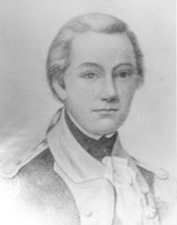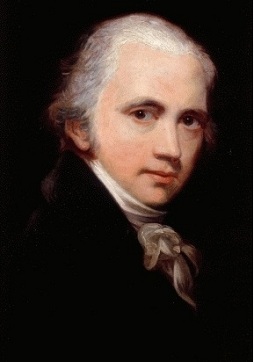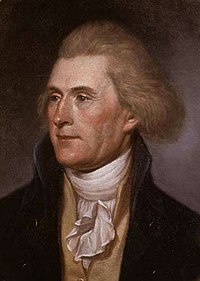
~ An American Political Simulator ~
Signups always OPEN
Check us out on IRC, #Sea2Sea
1796-99
Washington Calls Election
Adams Wins By Narrow Margin
5th Congress, 1st Session
2nd Session
1799-1801
6th Congress, 1st Session
Yellow Fever Panic of 1799
Adams Silent On Yellow Fever
Election of 1800
Election Results of 1800
1801-1803
7th Congress, 1st Session
Tripoli Declares War
7th Congress Adjourns
1803-1805
Midterms of 1803
8th Congress, 2nd Session
Election of 1804
Adams Administration, 1796 - 1801
~ John Adams, a Federalist, is elected in 1796 in a narrow victory over Thomas Jefferson, a Republican.
~ Upon harassment by French warship in the Caribbean and the Atlantic, Adams began building the US Navy and establishes the Marine Corps.
~ The US Navy engages French vessels in the Caribbean, along with privateers, resulting in a Quasi-War with France.
~ Adams establishes maritime hospitals in major ports in the US, paid for by a sailor income tax.
~ Federalists concede to Republican demands regarding the Revenue-Cutter Reform Act, and expand the cutters while building a base in Savannah, Georgia.
~ Federalists pass the Interstate Banking Act, decentralizing the US National Bank, the bill would be upheld in courts following a petition that it violated the Bank Charter.
~ Adams declines to seek a second term amidst criticism regarding his failure to respond to the Yellow Fever Panic of 1799.
~ Napoleon Bonaparte seizes control of France and there is a deescalation of conflict between America and France, followed by peace.
Thowegood Administration 1801 - 1805
~ Republicans lose another straight election following a split in the party between Thomas Jefferson and Pierce Sumter.
~ Andrew Thowegood is sworn in as president following the death of president elect Emery Armstrong, who succumbed to his wounds in a duel with Georgian senator, George Matthews.
~ Thowegood immediately withholds further tribute to the Barbary States, resulting in the Barbary Coast War being declared in 1801.
~ Federalists pass a large infrastructure plan to build a canal from the Hudson River to Lake Erie. Marred in setbacks, the $5 million project is dubbed the Canal-to-Nowhere by Republicans.
~ Federalist Senator Wedgewood introduces a series of bills shrinking the peacetime ranks of the US Army, expanding state militias, and introducing a tariff that, while protecting the cotton industry, introduces tariffs on manufactured goods that create a southern dependency on the north.
~ Republicans take control of the House of Representatives and strike down the Federal Works Act, viewed as a unnecessary expansion to federal bureaucracy.
~ The Land Speculation Act passes, together with the Millage Act of 1803, curtail big speculators and tax large land companies.
~ The USS Philadelphia is captured by the Tripoli fleet.
~ The port of New Orleans is closed to America, resulting in a diplomatic crisis. Thowegood initiates a measured response, and diplomacy solves the crisis, avoiding a conflict with France.
~ President Thowegood announces in 1805 that he will not be seeking a second term in office.
~ John Adams, a Federalist, is elected in 1796 in a narrow victory over Thomas Jefferson, a Republican.
~ Upon harassment by French warship in the Caribbean and the Atlantic, Adams began building the US Navy and establishes the Marine Corps.
~ The US Navy engages French vessels in the Caribbean, along with privateers, resulting in a Quasi-War with France.
~ Adams establishes maritime hospitals in major ports in the US, paid for by a sailor income tax.
~ Federalists concede to Republican demands regarding the Revenue-Cutter Reform Act, and expand the cutters while building a base in Savannah, Georgia.
~ Federalists pass the Interstate Banking Act, decentralizing the US National Bank, the bill would be upheld in courts following a petition that it violated the Bank Charter.
~ Adams declines to seek a second term amidst criticism regarding his failure to respond to the Yellow Fever Panic of 1799.
~ Napoleon Bonaparte seizes control of France and there is a deescalation of conflict between America and France, followed by peace.
Thowegood Administration 1801 - 1805
~ Republicans lose another straight election following a split in the party between Thomas Jefferson and Pierce Sumter.
~ Andrew Thowegood is sworn in as president following the death of president elect Emery Armstrong, who succumbed to his wounds in a duel with Georgian senator, George Matthews.
~ Thowegood immediately withholds further tribute to the Barbary States, resulting in the Barbary Coast War being declared in 1801.
~ Federalists pass a large infrastructure plan to build a canal from the Hudson River to Lake Erie. Marred in setbacks, the $5 million project is dubbed the Canal-to-Nowhere by Republicans.
~ Federalist Senator Wedgewood introduces a series of bills shrinking the peacetime ranks of the US Army, expanding state militias, and introducing a tariff that, while protecting the cotton industry, introduces tariffs on manufactured goods that create a southern dependency on the north.
~ Republicans take control of the House of Representatives and strike down the Federal Works Act, viewed as a unnecessary expansion to federal bureaucracy.
~ The Land Speculation Act passes, together with the Millage Act of 1803, curtail big speculators and tax large land companies.
~ The USS Philadelphia is captured by the Tripoli fleet.
~ The port of New Orleans is closed to America, resulting in a diplomatic crisis. Thowegood initiates a measured response, and diplomacy solves the crisis, avoiding a conflict with France.
~ President Thowegood announces in 1805 that he will not be seeking a second term in office.
From the aftermath of the Revolutionary War a nation is born. Poised to become the lone superpower of the world, this nation, in its infancy, was fraught with doubt, unrest, and dilemmas. From fragile beginnings, a firm foundation is laid and all that is needed is stout leadership to bring the nation and its peoples to realize their potential. Many compete to realize their vision for the future, and it is out of their toil and the insurmountable consequences of their actions that America will rise or fall.
Welcome to Sea To Shining Sea: An American Political Simulator. Player's fill the role of Senators of the upper house of Congress within the legislative branch. It is your role to draft and debate policy. Players may also join as characters from outside the political arena, though this may limit your impact on the game, depending on how you IC. Bankers, prospectors, naval and army officers, whatever catches your fanct.
Every turn, comprising of a four year term, an election is held where players can make a bid for leadership of their respective party followed by the presidential race. The president then selects his cabinent and can begin submitting policy to the senate for debate and voting. Crises will also appear every term that the president and his cabinet and the senate will need to respond to, but more on that later.
To get started, you will need to sign up with a character. As time skips ahead by four year each turn, you are free to retire characters and select new ones at your leisure. You may select a historical or fictional character, but be aware that historical characters will often get priority during elections.
Please use the following template when signing up.

George Washington
Born 1732
Westmorland, Virgina
Independent [Either Independent, Federalist, or Democratic-Republican Party]
Born in 1732 in Virgina, Washington was the son of a British Judge. Before being swept up in the French Indian War, he spent his early adulthood as a surveyor. From there he enlisted in the British Militia of Virginia, obtaining the rank of Major. The British Crown appointed Washington as their ambassador, selecting him to negotiate with French officials which thrust him into a pivotal role over the course of the war.
Securing land in a series of beneficial land deals, Washington rose to become a prominent member of the american aristocracy. By the outbreak of the Revolutionary War, Washington was a delegate of the First Continental Congress and a leading voice within the congress. In the summer of 1775, Washington was selected to be Commander-in-Chief of the Continental Army, and led american forces against the British, eventually gaining victory and independence from Britain.
While Washington's role in drafting the Constitution was relatively minor, his input carried great weight and many followed his votes. In 1789 he was elected as the first president of the United States, establishing many precedents and important policies.
The Judicial Act of 1789 established the judicial branch of government and the supreme court. The Tariff Act of 1789 established the primary income of the federal government to be duties collected from trade. The Residence Act of 1790 established the federal capital along the Potomac River, named City of Washington in the Territory of Columbia. Finally there was the creation of the Cabinet, trusted officials to advise the president and head up important departments of government.
Washington served for two terms, announcing federal elections and prepared for therelinquishing of the presidency in 1797.
How To Play
The game is played in separate turns spanning two years each. Each turn is divided into three phases...
Election Phase - Players announce their candidacy for the leadership of their respective party and the office of the President of the United States. Candidates announce via IC their platform and campaign for election in thread, writing speeches and the like to gather support. Party members then vote for their preferred leadership. Afterwards, the electorate (GM) cast their votes and a new president is elected, the runner up becomes the Vice President.
Once elected, the president selects his cabinet from among the players or NPCs;
Secretary of Foreign Affairs, responsible for drafting foreign policy.
Secretary of the Treasury, responsible for drafting economic policy.
Secretary of War, responsible for all military affairs.
Postmaster General, leading the U.S. Postal Service.
Attorney General, President's legal counsel and charged with federal law enforcement across the land.
Every two years, elections are held to determine the distribution of seats in the Senate and House of Representatives. Should the opposition party gain majority control of either house, the president will find he will need to compromise in order to pass any bill. The president will also have an opportunity at this point to shuffle his cabinet. Senators automatically win their riding until they resign their character.
Each term the senate must elect a President Pro Tempore, who presides over the senate in the Vice-President's absence. The PPT is an elected senator and third in line of presidential succession. The PPT has authority to appoint congressional officers, advisory boards and committees.
Policy Phase - After the president picks his cabinet, we move on to the policy phase. Where the president and his cabinent, as well as the senate, may propose policy and legislation for voting. The president has veto power over any policy or legislation and it is recommended that he works closely with the cabinet so they can present policy and bills as a cohesive unit.
Any bills and policies needn't be the staggering piece of legalese in their typical form. You may write them bare bones and to the point. I don't expect a crack team of lawyers churning this stuff out. That being said, the Senate should point out any problems and make suggestions for a broader, bipartisan bill to be carried into law.
Crisis Phase - Historical events will appear needing deliberation among the senate, the president, and his cabinet. While the president and his team have the final say, the senate should hesitate to weigh in on the situation and stride to advise the president on the best course of action.
After the crisis phase, an overall update summing up the four year term is posted and another election is held. Obviously, a president may serve up to two terms in office.
Now feel free to sign up, posting your character. Game will be beginning next week beginning with the elections of 1796. Bios of historical characters may be altered so they serve in the senate.
You may catch me on IRC at #Sea2Sea.
The game is played in separate turns spanning two years each. Each turn is divided into three phases...
Election Phase - Players announce their candidacy for the leadership of their respective party and the office of the President of the United States. Candidates announce via IC their platform and campaign for election in thread, writing speeches and the like to gather support. Party members then vote for their preferred leadership. Afterwards, the electorate (GM) cast their votes and a new president is elected, the runner up becomes the Vice President.
Once elected, the president selects his cabinet from among the players or NPCs;
Secretary of Foreign Affairs, responsible for drafting foreign policy.
Secretary of the Treasury, responsible for drafting economic policy.
Secretary of War, responsible for all military affairs.
Postmaster General, leading the U.S. Postal Service.
Attorney General, President's legal counsel and charged with federal law enforcement across the land.
Every two years, elections are held to determine the distribution of seats in the Senate and House of Representatives. Should the opposition party gain majority control of either house, the president will find he will need to compromise in order to pass any bill. The president will also have an opportunity at this point to shuffle his cabinet. Senators automatically win their riding until they resign their character.
Each term the senate must elect a President Pro Tempore, who presides over the senate in the Vice-President's absence. The PPT is an elected senator and third in line of presidential succession. The PPT has authority to appoint congressional officers, advisory boards and committees.
Policy Phase - After the president picks his cabinet, we move on to the policy phase. Where the president and his cabinent, as well as the senate, may propose policy and legislation for voting. The president has veto power over any policy or legislation and it is recommended that he works closely with the cabinet so they can present policy and bills as a cohesive unit.
Any bills and policies needn't be the staggering piece of legalese in their typical form. You may write them bare bones and to the point. I don't expect a crack team of lawyers churning this stuff out. That being said, the Senate should point out any problems and make suggestions for a broader, bipartisan bill to be carried into law.
Crisis Phase - Historical events will appear needing deliberation among the senate, the president, and his cabinet. While the president and his team have the final say, the senate should hesitate to weigh in on the situation and stride to advise the president on the best course of action.
After the crisis phase, an overall update summing up the four year term is posted and another election is held. Obviously, a president may serve up to two terms in office.
Now feel free to sign up, posting your character. Game will be beginning next week beginning with the elections of 1796. Bios of historical characters may be altered so they serve in the senate.
You may catch me on IRC at #Sea2Sea.
Last edited:











,_2nd_president_of_the_United_States,_by_Asher_B._Durand_(1767-1845)-crop.jpg/220px-US_Navy_031029-N-6236G-001_A_painting_of_President_John_Adams_(1735-1826),_2nd_president_of_the_United_States,_by_Asher_B._Durand_(1767-1845)-crop.jpg)








